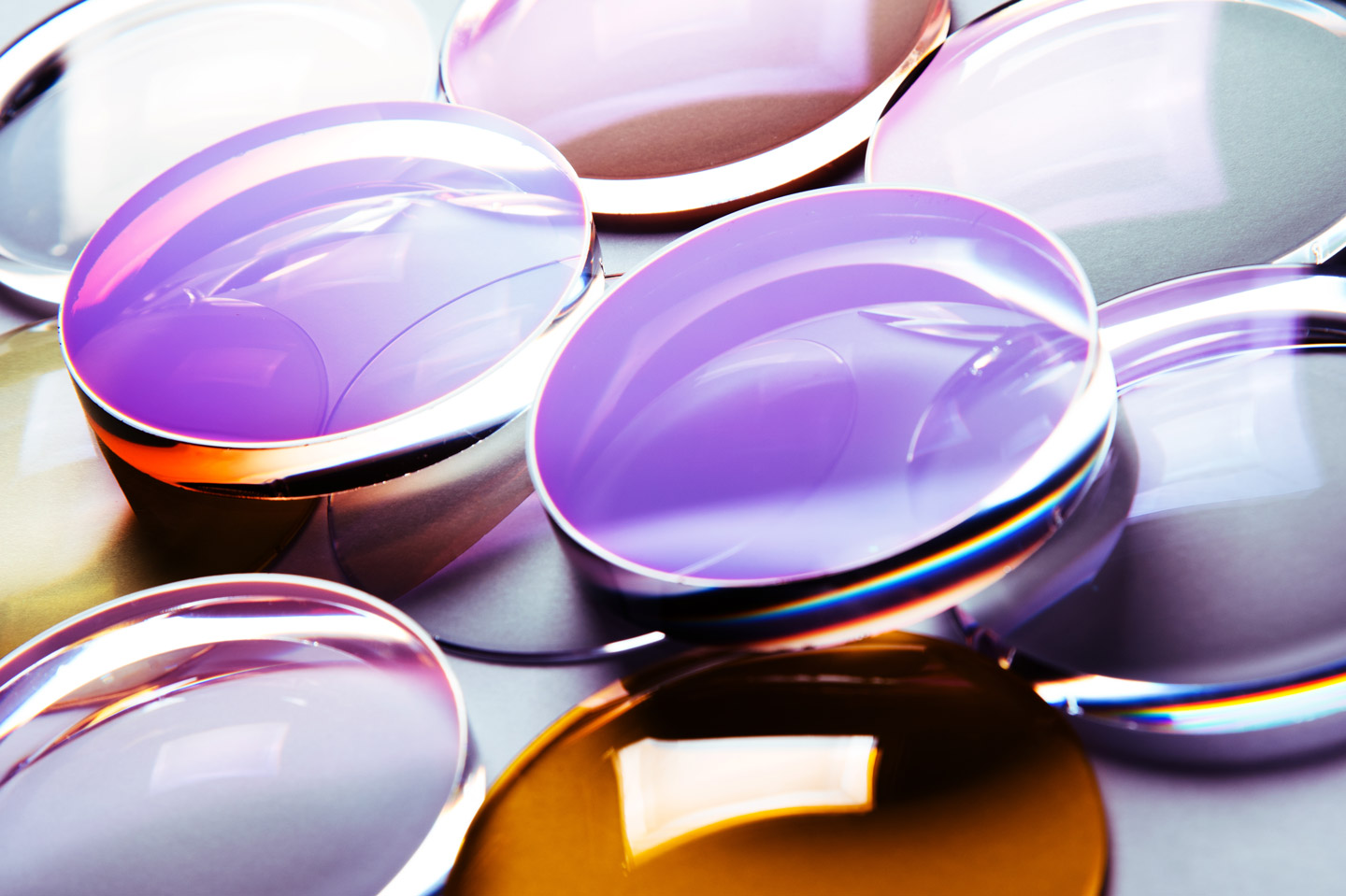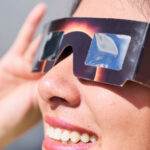
Have you ever found yourself squinting because light (real or artificial) is reflecting into your line of sight? Anti-reflective lenses eliminate these frustrating reflections. Also known as anti-glare or AR, this particular coating removes scattered light which reflects on the front and back of your glasses lenses. Permitting up to 99% of light into your eye ultimately enhances your vision, creates sharper visuals and allows others to see you more clearly too.
What Is Anti-Reflective Coating?
Anti-reflective coating is made up of a thin chemical layer which is applied to both the front and back of your lenses. It is a very effective coating which eliminates the unnecessary light which causes glare and reflective distractions. Instead, it emits more light into your eye, helping improve vision. On average, anti-reflective lenses can last up to 2 years, if correctly cared for.
What Is The Difference Between Anti-Reflective And Anti-Glare?
Although they sound very similar, the main difference is anti-glare protects from external light sources; diffusing light which bounces off surfaces (such as roads, water or snow) and causes that blinding glare. Whereas anti-reflective lenses go one step further by diffusing both internal and external light sources and removing reflections within your lenses.
Do I Need Anti-Reflective Lenses?
An anti-reflective coating can be applied to both prescription and non-prescription lenses, so no matter your lifestyle, everyone can benefit from anti-reflective glasses! With laptops, phones and digital devices becoming more constant in our day-to-day lives, anti-reflective coatings help protect your eyes from excess LED or artificial light, these are more commonly known as blue light glasses. If you drive a lot, especially at night, anti-reflective can also reduce the distraction of blinding reflections, allowing you to have a clear sight of the road or potential hazards ahead.
The Benefits Of Anti-Reflective Coatings
Photos without glare
Anti-reflective lenses become invisible to the camera, so you can enjoy no more reflections in your lenses from flashes or selfies, creating better-quality photos.
Less eye strain or squinting
Excess light naturally causes our eyes to squint in order to protect our eyes and focus on what’s in front of us. Less squinting will reduce eye strain, tiredness and headaches too.
Improvement in overall vision
With more light transmitting into your eyes (99% in fact), you can fully see what’s ahead of you—providing sharper images, crisper contrasts, and more confidence in your sight.
Better for computer users
People working in offices or with digital screens are often exposed to more artificial light which bounces off their lenses. Anti-reflection can reduce this, supporting your eye health.
They’re extremely versatile
As we said, anti-reflective glasses can be worn by anyone and applied to any style of glasses, including sunglasses. Meaning they can be worn all year round, within any setting.
Better for driving, especially at night
By eliminating the reflection of streetlights, headlights or even your dashboard, you are increasing your vision clarity, helping you stay more alert and reactive on the road.
How To Care For Anti-Reflective Lenses
Due to the delicacy of this coating, you should only use recommended cleaning products on your anti-reflective lenses. Always wet your lenses first before cleaning them with a cloth; they can be easily scratched which is more noticeable on AR lenses.
Can I Get An Anti-Reflective Coating On My Current Lenses?
Absolutely. Using our reglazing service, you can choose whether to have your existing frames reglazed or have your prescription lenses put into any frame you like via our free-post service. Order a pack from us and select the coatings and prescription you need, and Lensology will reglaze your lenses to order. Our anti-reflective coating is available on all lens types, including single vision, sunglasses lenses, bifocal lenses, varifocal lenses, and more. For more information, read our FAQs or get in touch today.






